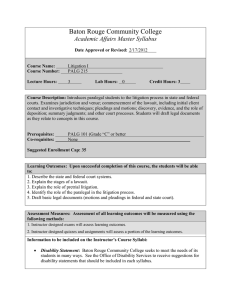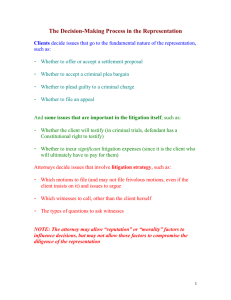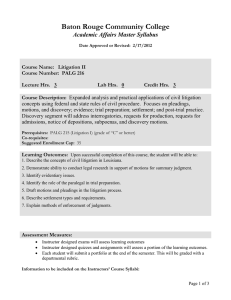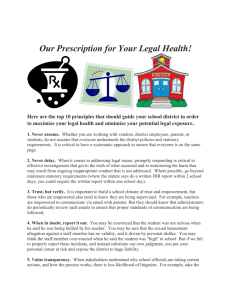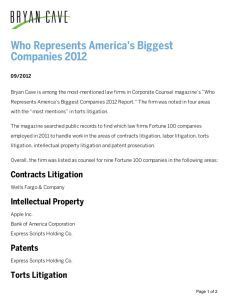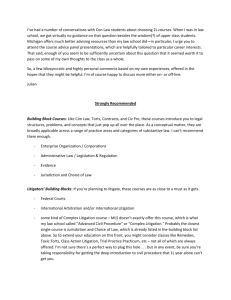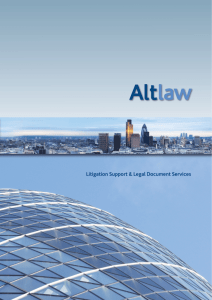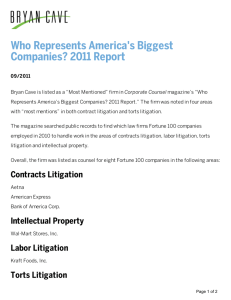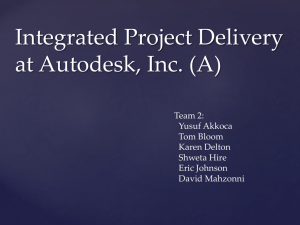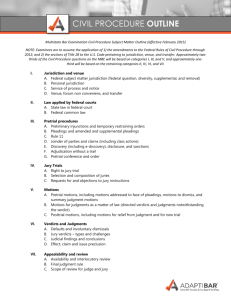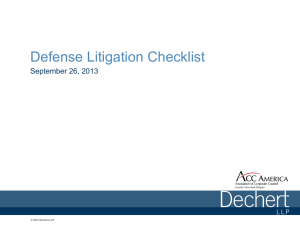LITIGATION PROCESS
advertisement
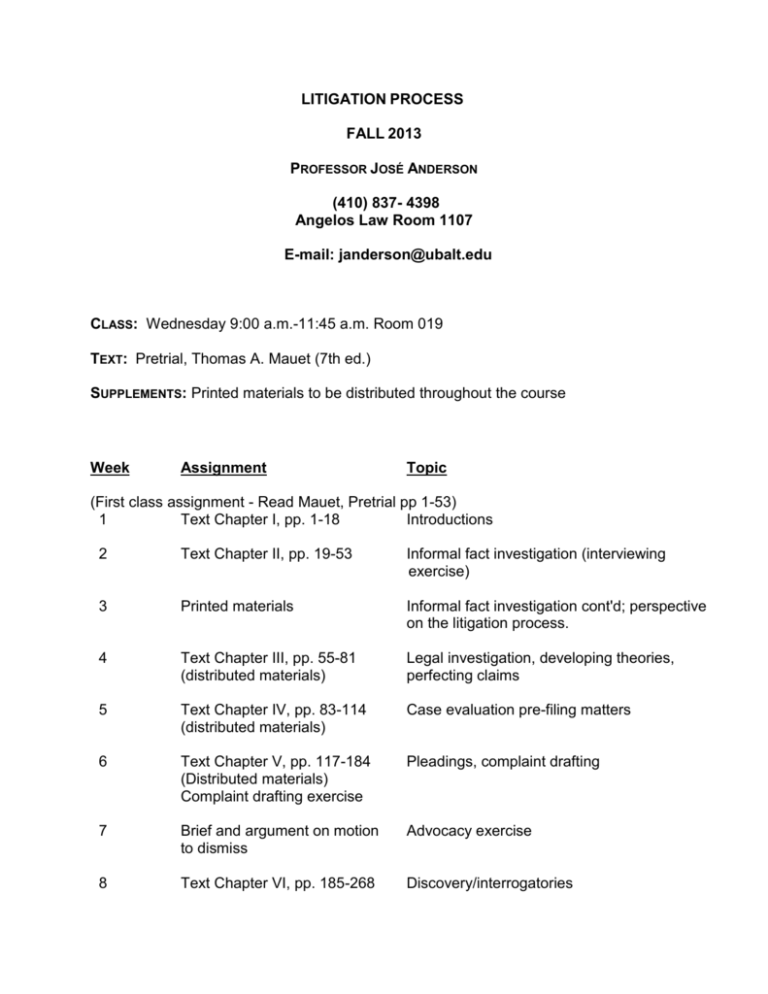
LITIGATION PROCESS FALL 2013 PROFESSOR JOSÉ ANDERSON (410) 837- 4398 Angelos Law Room 1107 E-mail: janderson@ubalt.edu CLASS: Wednesday 9:00 a.m.-11:45 a.m. Room 019 TEXT: Pretrial, Thomas A. Mauet (7th ed.) SUPPLEMENTS: Printed materials to be distributed throughout the course Week Assignment Topic (First class assignment - Read Mauet, Pretrial pp 1-53) 1 Text Chapter I, pp. 1-18 Introductions 2 Text Chapter II, pp. 19-53 Informal fact investigation (interviewing exercise) 3 Printed materials Informal fact investigation cont'd; perspective on the litigation process. 4 Text Chapter III, pp. 55-81 (distributed materials) Legal investigation, developing theories, perfecting claims 5 Text Chapter IV, pp. 83-114 (distributed materials) Case evaluation pre-filing matters 6 Text Chapter V, pp. 117-184 (Distributed materials) Complaint drafting exercise Pleadings, complaint drafting 7 Brief and argument on motion to dismiss Advocacy exercise 8 Text Chapter VI, pp. 185-268 Discovery/interrogatories (distributed materials) 9 Text Chapter VI, pp. 269-307 (distributed materials) Discovery/depositions 10 Text Chapter VII, pp. 307-358 (Distributed materials) Motions practice, con't 11 Text Chapter VIII, pp. 358-422 (distributed materials) Pretrial conferences and settlements 12 Brief and argument on motion for summary judgment; negotiation exercise. Advocacy exercise 13 Preparation for final trial Team meetings 14 Final presentations Case assessments NOTE: The Professor reserves the right to alter the syllabus to facilitate the proper presentation of the course material. ~~~~~~~~~~~~~~~~~~~~~~~~~~~~~~~~~~~~~~ This course in Litigation Process is designed through simulation and discussion to provide a lawyer in training with a basic understanding of the pretrial preparation involved in trial litigation. The primary format is the use of group decision making with special emphasis on ethical and practical consequences of the decision making process. Although the course focuses on civil litigation, many of the skills learned will be equally transferable to criminal proceedings as well. The objectives of the course are to provide the lawyer in training with a sense of the importance that complete preparation, precision of written documents, and clarity of oral presentation bring to advancing an advocate toward the best possible result in litigation. Special attention will be directed to interviewing, client relationships, ethical matters, and risk assessment. Role playing and colleague critique will be an important feature of developing the skills needed to become a confident and effective advocate. Since this is a simulation course. There will be a requirement that students do more independent thinking than in most law school courses. Guidance from the professors will often be intentionally withheld in the student decision making process so that professional judgment can be developed. Administrative Matters The course will be graded as follows: Written exercises: letters, pleadings, motions, etc. 75% Oral Presentations: arguments on motions, role playing, class discussion 25% Professor Anderson's office hours for the fall semester will be Wednesday from 12:00 noon – 1:30 p.m. noon; Tuesday and Thursday: 12:00 noon-1:30 p.m. subject to meetings of the faculty and its committees. Other meeting times may be obtained by appointment. Regular and punctual attendance is expected. A student whose unexcused absences exceed three (3) classes may be compelled to withdraw from the course. Since other people are relying on your attendance and participation for the course to properly work, and since the course only meets once a week, it cannot be over emphasized that attendance is critical.
